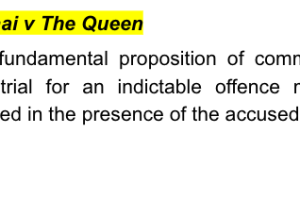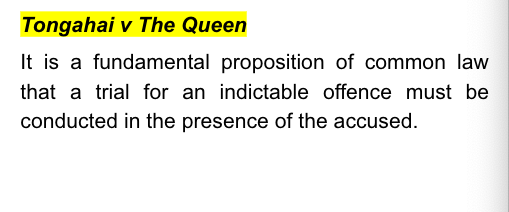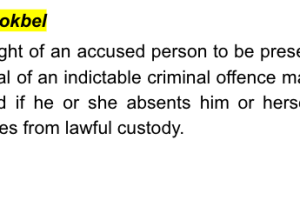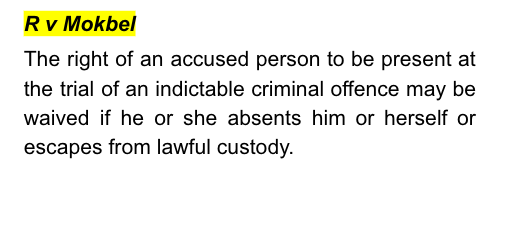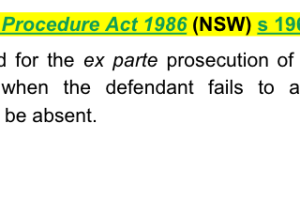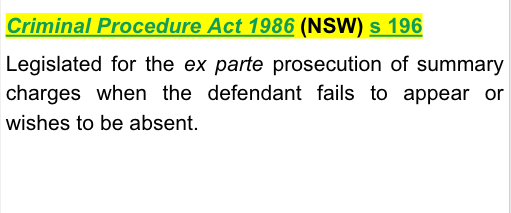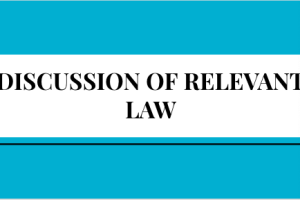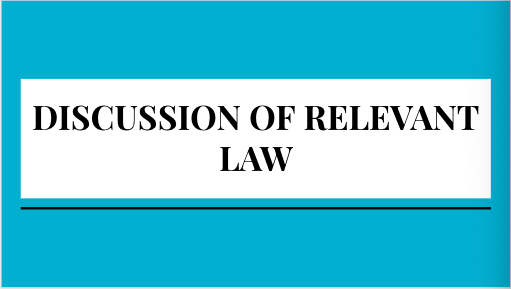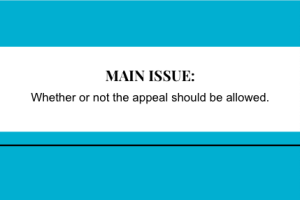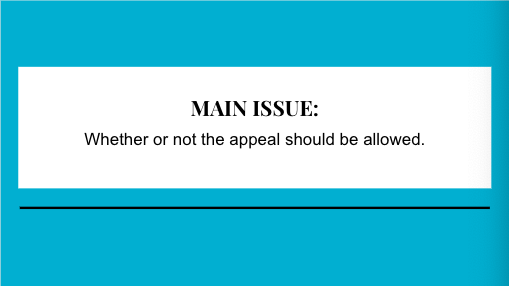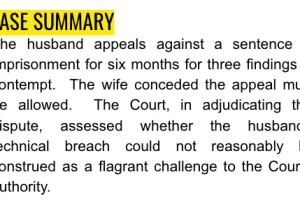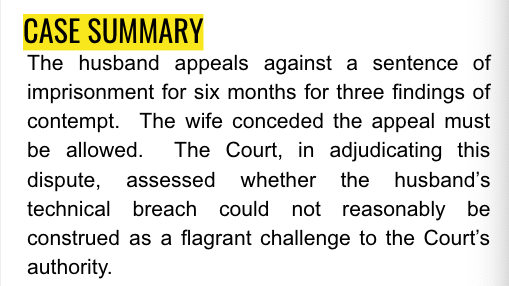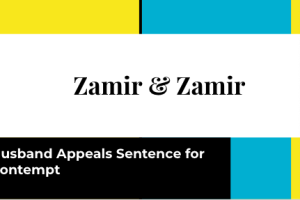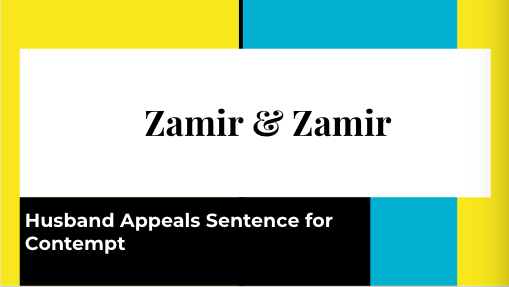- · 4784 friends
Husband Appeals Sentence for Contempt

Zamir & Zamir [2022] FedCFamC1A 193 (24 November 2022)

The husband appeals against a sentence of imprisonment for six months for three findings of contempt. The wife conceded the appeal must be allowed. The Court, in adjudicating this dispute, assessed whether the husband’s technical breach could not reasonably be construed as a flagrant challenge to the Court’s authority.

Facts
In May 2021, the wife commenced proceedings against the husband seeking property settlement relief under Pt VIII of the Family Law Act 1975 (Cth) (“the Act”). The parties enjoyed proprietorship of assets situated in both Australia and overseas. On 2 August 2021, interim orders were made by a registrar to restrain the husband from dealing with his assets. Dissatisfied with those orders, the husband filed an application to review them several days later on 6 August 2021.
The orders were not stayed whilst the review application was pending, so they remained operative and binding until the review was complete. The review application was heard on 12 August 2021, but was not determined until orders were later made on 2 September 2021. The wife believed the husband alienated their assets outside of Australia in deliberate breach of the primary orders and so filed an Application-Contempt on 22 July 2022 to prosecute him for three specific counts of contempt. The contempt application was listed for hearing in September 2022, at which time there was no appearance either by or on behalf of the husband.
On 29 September 2022, orders were made by the judge of the Federal Circuit and Family Court of Australia (Division 1) to determine several disputes between multiple parties. In the appellant husband’s absence, the primary judge sustained three counts of contempt alleged by the respondent wife against him and sentenced him to imprisonment for a period of six months. The husband presently resides abroad, but he appealed from the orders through his representation by Australian lawyers. Just in advance of the appeal hearing, the wife forecast her concession of the appeal.

Issue
Whether or not the appeal should be granted.

Applicable law



Analysis
In the appeal, the husband wanted to rely on an affidavit he filed in March 2022, wherein he had deposed to the circumstances surrounding his transfer of title in Properties A and B, together with some documents annexed to the affidavit. Had he wished, the husband could have attended the contempt hearing, even by electronic means. Had he done so, having heard the evidence adduced against him by the wife, he could have relied upon the historical affidavit in his defence. But he elected not to do so.
There was no evidence – then or now – that he failed to appear due to some misadventure. He chose not to participate. In his absence, once satisfied of his proper service and there being no application made for an adjournment, the primary judge proceeded with the hearing by taking the wife’s evidence of the contempt, receiving her submissions, and reserving judgment. The husband submitted the course which the primary judge should have instead adopted was to hear the wife’s evidence in support of the three counts of contempt, either dismissed or resolved to find a prima facie case established in respect of each, adjourned the part-heard hearing if a prima facie case was found in respect of any count, and then issued a warrant for the husband’s arrest. The corollary of the proposition is that the contempt application would be left in a permanent state of suspension unless and until the husband ever elected to return to Australia so the arrest warrant could be executed.
Conclusion
The Application in an Appeal filed on 27 October 2022 is dismissed. The appeal is allowed. Orders 2 and 3 made on 29 September 2022 are set aside. The Application-Contempt filed by the respondent on 22 July 2022 is dismissed.


